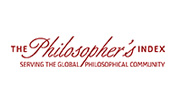DIASPORA AND CULTURAL MEMORY IN THE PHILOSOPHY OF ISLAM: IDENTITY CONSTRUCTION AMONG CHAMPA DESCENDANTS IN MALAYSIA
Yahui Zhou
PHD candidate, Institut Alam & Tamadun Melayu, Universiti Kebangsaan Malaysia, Lingkungan Ilmu, Bangi, Selangor, Malaysia
Asyaari Bin Muhamad
Assistant Professor, Institut Alam & Tamadun Melayu, Universiti Kebangsaan Malaysia, Lingkungan Ilmu, Bangi, Selangor, Malaysia
Zuliskandar Bin Ramli
Assistant Professor, Institut Alam & Tamadun Melayu, Universiti Kebangsaan Malaysia, Lingkungan Ilmu, Bangi, Selangor, Malaysia
DOI: https://doi.org/10.24204/ejpr.2025.4826
Abstract
This study focuses on understanding how diaspora experiences and cultural memory contribute to constructing identity among Champa descendants in Malaysia, particularly in the philosophy of Islam. The conceptualization of culture in the study refers to the idea that Islam is possibly the key force in constructing and framing people's memories or recollections about cultural experiences. Significant domains of diaspora experience like avocation, marriage, profession, and cooking practices are compared to their role in integrating Champa culture with the Malaysian mainstream. In the same way, cultural memory, which is language, customs, knowledge, and micro-practices of everyday life, is analyzed to learn how it is passed down through generations. The research shows that Islamic values serve as a framework for synthesizing these divergent influences and allowing a common identity to be maintained in the Champa community. Qualitative data was analyzed manually by identifying themes in the participants' recovery experiences with the help of the NVivo software. Using the qualitative research paradigm and employing only thematic analysis, the study looks at how the Champa diaspora maintains and recreates the lost cultural and religious identity and adapts its place in the Malaysian sociocultural environment. By describing the experiences of the Cham people of Malaysia, this research adds to the existing global literature on Diaspora, cultural memory, and the formation of their identity, particularly within the Islamic context.
Keywords: Diaspora Experiences, Cultural Memory, Identity Construction, Champa Descendants, and Philosophy of Religion






